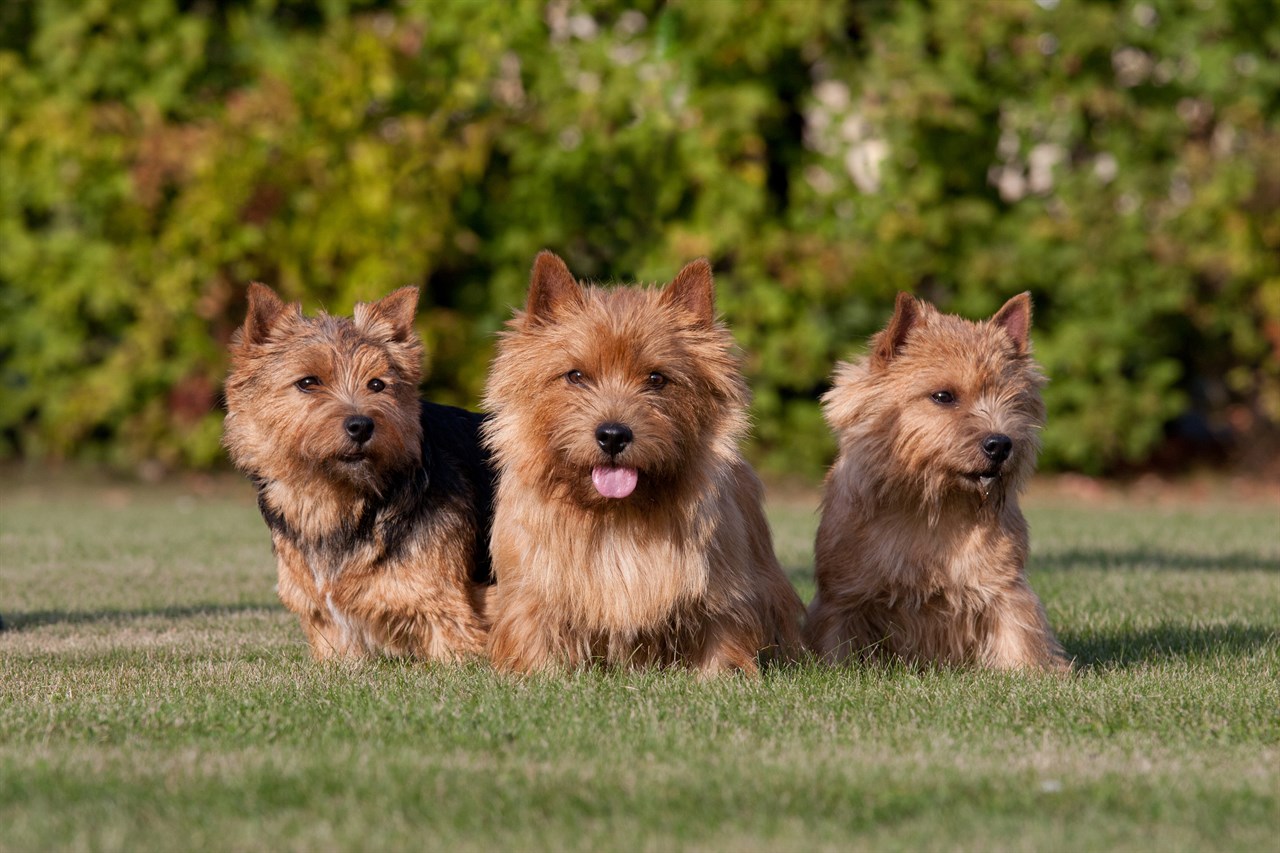Feeding Habits and Food Requirements of Norwich Terriers

Proper nutrition is essential for the health and well-being of Norwich Terriers. Understanding their feeding habits and food requirements is crucial to keeping them in peak condition. Here's a comprehensive look at how to meet their dietary needs.
Age and Life Stage
Norwich Terriers have different nutritional requirements at various life stages.
- Puppies: Growing puppies need a diet rich in protein and calories to support their development. Look for puppy-specific dog food that meets the nutritional needs of young dogs. Feed them according to the manufacturer's guidelines based on their age, weight, and activity level.
- Adults: Once they reach adulthood, typically around 1 year of age, Norwich Terriers can transition to adult dog food. Look for high-quality commercial dog food appropriate for their size and activity level.
- Seniors: As dogs age, their metabolism may slow down, and they may require fewer calories. Senior-specific dog food formulas often contain ingredients that support joint health and overall well-being.
Portion Control
Portion control is essential to prevent overfeeding, which can lead to obesity—a common issue in small dog breeds like Norwich Terriers. Follow the recommended serving sizes on the dog food packaging, but keep in mind that individual needs may vary based on activity level and metabolism. It's a good idea to consult with your veterinarian to determine the right portion size for your specific dog.
High-Quality Dog Food
Choose high-quality commercial dog food that lists meat as the primary ingredient. Look for dog food that meets the standards set by organisations like the Association of American Feed Control Officials (AAFCO) to ensure it provides complete and balanced nutrition.
Protein and Fat Content
Norwich Terriers benefit from a diet that contains moderate levels of protein and fat. Protein is essential for muscle development, while fat provides a concentrated source of energy. Aim for a dog food formula that offers a protein content of around 18-25% and a fat content of 8-15%.
Special Dietary Considerations
Some Norwich Terriers may have specific dietary needs or sensitivities. It's essential to be aware of any food allergies or intolerances your dog may have and select an appropriate diet accordingly. Consult your veterinarian for guidance if you suspect your dog has dietary issues.
Fresh Water
Always provide your Norwich Terrier with access to fresh, clean water. Proper hydration is crucial for their overall health.
Treats and Snacks
While treats and snacks can be used as rewards during training, it's important not to overdo it. High-calorie treats can quickly add extra pounds, so choose treats that are appropriate for your dog's size and dietary needs.
Regular Feeding Schedule
Establish a consistent feeding schedule for your Norwich Terrier. Most dogs do well with two meals a day, but the exact timing may vary based on your dog's age and schedule. Stick to the same feeding times each day to help regulate their digestion.
Regular Veterinary Check-Ups
Regular veterinary check-ups are essential to monitor your Norwich Terrier's weight, overall health, and nutritional needs. Your vet can provide guidance on diet and make adjustments as needed.
In conclusion, providing a well-balanced and nutritious diet is essential to ensure the health and vitality of Norwich Terriers. Understanding their specific life stage requirements, portion control, and dietary considerations will help you make informed decisions about their feeding habits and food choices. Always consult with your veterinarian to create a personalised nutrition plan that suits your individual dog's needs.
Norwich Terrier puppies for sale
- Find Norwich Terrier puppies for sale in ACT
- Find Norwich Terrier puppies for sale in NSW
- Find Norwich Terrier puppies for sale in NT
- Find Norwich Terrier puppies for sale in QLD
- Find Norwich Terrier puppies for sale in SA
- Find Norwich Terrier puppies for sale in TAS
- Find Norwich Terrier puppies for sale in VIC
- Find Norwich Terrier puppies for sale in WA